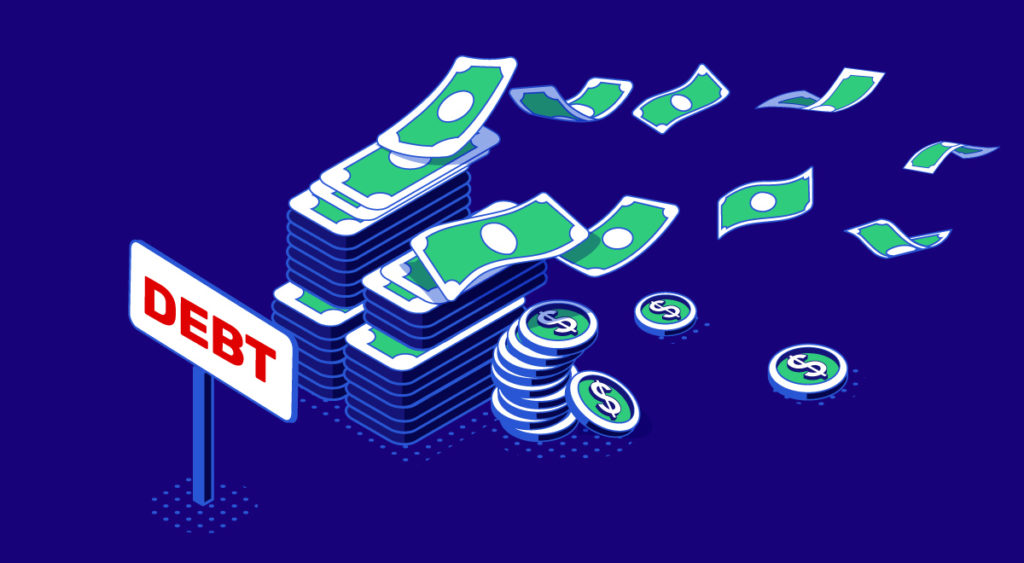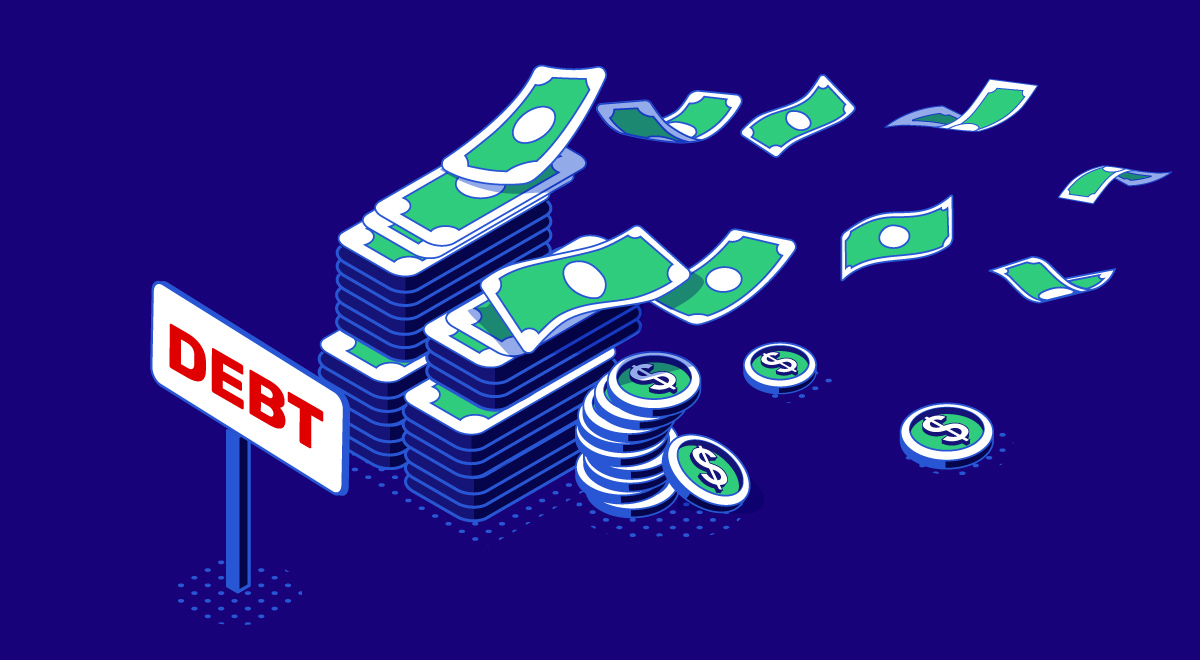
Most of us know the uncomfortable feeling of sinking ever more deeply into debt. The average American household carries more than $90,000 in mortgage, credit card, student loan, personal loan and other forms of debt, according to one recent report.
At some point, those obligations can become overwhelming.
If debts are keeping you awake at night, you may be looking for debt relief options like debt consolidation or taking a loan from your 401(k) plan to wipe the slate clean. While the latter might seem like an attractive option, is it ever wise?
“Borrowing from a 401(k) plan is risky, especially given the challenge that many people face of saving enough money for retirement,” says Matthew Imes, an assistant professor of finance in the School of Business at Stetson University.
However, there still may be situations where tapping a 401(k) loan makes sense.
Is It Smart To Use Your 401(k) To Pay Off Debt?
Chances are good that your workplace retirement account has tens of thousands of dollars built up — or even more — if you’ve contributed to it regularly over the years.
“For many people, retirement assets represent a sizable chunk of their overall wealth,” Imes says.
Because these accounts often contain a lot of money, there are situations where it might make sense to tap them to pay off certain types of debt. Imes says all of the following are circumstances where borrowing from a 401(k) can be helpful:
- To cover the costs of life-threatening medical emergencies
- To avoid bankruptcy
- To prevent foreclosure on your home
- To provide for essential daily needs during difficult times
However, while borrowing from your 401(k) plan can help you in desperate times, using this option still comes with a major cost: It diverts funds away from your retirement savings, potentially putting your golden years at risk.
What Are The Pros And Cons Of Using Your 401(k) To Pay Off Debt?
In general, the risks of borrowing from your 401(k) plan are significant, and often outweigh the potential benefits.
Most importantly, taking a 401(k) loan can permanently reduce the size of your retirement savings. For starters, “a 401(k) loan creates an opportunity cost,” Imes says.
“For any investor that takes out a 401(k) loan during a rising stock market, they are foregoing the performance that the underlying assets of the loan would have realized,” he says.
Missing out on those gains can have long-lasting consequences, robbing you of compounding earnings and leaving you thousands of dollars — possibly even hundreds of thousands of dollars — poorer in retirement.
It’s also important to note that if you take out a 401(k) and separate from your company before the loan is paid back, there’s a good chance that all the money you’ve borrowed will become due immediately.
If you can’t pay back the money, you may be forced to treat the loan as a distribution. If this happens, you’ll also owe income tax and an early withdrawal penalty of 10% on the money.
Consequences such as these can put some large and possibly irreparable cracks in your nest egg. Because of these major drawbacks, people should think twice before borrowing from their 401(k) plan.
Imes says flatly that the decision to borrow from your 401(k) plan “puts the prospect of having a suitable and comfortable retirement at risk.”
However, there may be times — such as the emergencies Imes cited above — when borrowing from your plan is the best option you have.
Imes notes that there are even situations when a 401(k) loan can pay off in ways you might not expect.
For example, if a debtor takes out a 401(k) loan and the stock market declines sharply after he or she has withdrawn the money, the debtor will “actually have benefitted from reducing their exposure to the stock,” Imes says.
What Is The Maximum Amount You Can Withdraw From Your 401(k)?
Retirement plans have the option of allowing participants to take loans, but such plans are not required to offer this perk. So, it’s possible that you won’t be allowed to withdraw any money from your 401(k). Ask your administrator to explain the rules that pertain to your plan.
The IRS says that if your plan does offer a loan option, the maximum amount that participants can borrow is whichever of the following is less:
- The greater of $10,000 or 50% of your vested account balance
- $50,000
That means that if your account balance is $50,000, you can only withdraw $25,000. If you have a balance of $100,000 or more, the most you can borrow is $50,000.
How Much Interest Does Withdrawing From A 401(k) Cost?
When you take out a loan of any kind, you typically have interest rates on the loan. That’s true of a 401(k) loan, too. But there’s a twist with the 401(k) loan: The interest you pay goes back into your retirement account.
So, you essentially pay the interest costs back to yourself. However, note that unlike standard, pre-tax contributions to a 401(k) plan, the interest you pay on the loan goes back into your account on a post-tax basis.
How much interest will you pay on your 401(k) loan? Generally, the 401(k) plan administrator determines this rate, and it’s often based on the Prime Rate. Most banks use the Prime Rate to set their own rates for different types of loans and lines of credit.
Does Withdrawing From Your 401(k) Affect Your Credit Score?
Borrowing from your 401(k) can put your retirement at risk, but it won’t hurt your credit score.
Unlike applying for a credit card, no lender will do a credit check if you borrow from your retirement fund. And even if you miss payments or default on your loan, this information won’t be submitted to credit-reporting agencies.
Is There A Penalty For Paying Off 401(k) Loans Early?
Generally, there’s no penalty for paying off a 401(k) loan early. However, each plan’s rules differ, so it’s important to check with your plan administrator.
For example, some plans may only allow you to pay off the balance in full, rather than making large repayments over a period.
What Are Some Alternatives To 401(k) Loans?
While a 401(k) loan might make sense in some situations, it can potentially put your retirement savings at risk. Imes says there are other options to consider before making such a withdrawal.
For example, if you own a home, it might make more sense to take out a home equity loan or apply for a personal loan to pay off your debts.
“These types of loans do not impact investor’s retirement capital, unless they are planning to use their home to fund retirement,” Imes says.
If your debts are overwhelming, you can also seek out the help of experts. These may include nonprofit credit counseling services or debt-settlement companies that can assist you with financial planning to overcome debt.
At National Debt Relief, we take pride in empowering people to regain their financial stability through our proven debt relief program. Contact us and talk to a financial expert who will work with you to find the best option to settle your debt and help you achieve financial independence.


